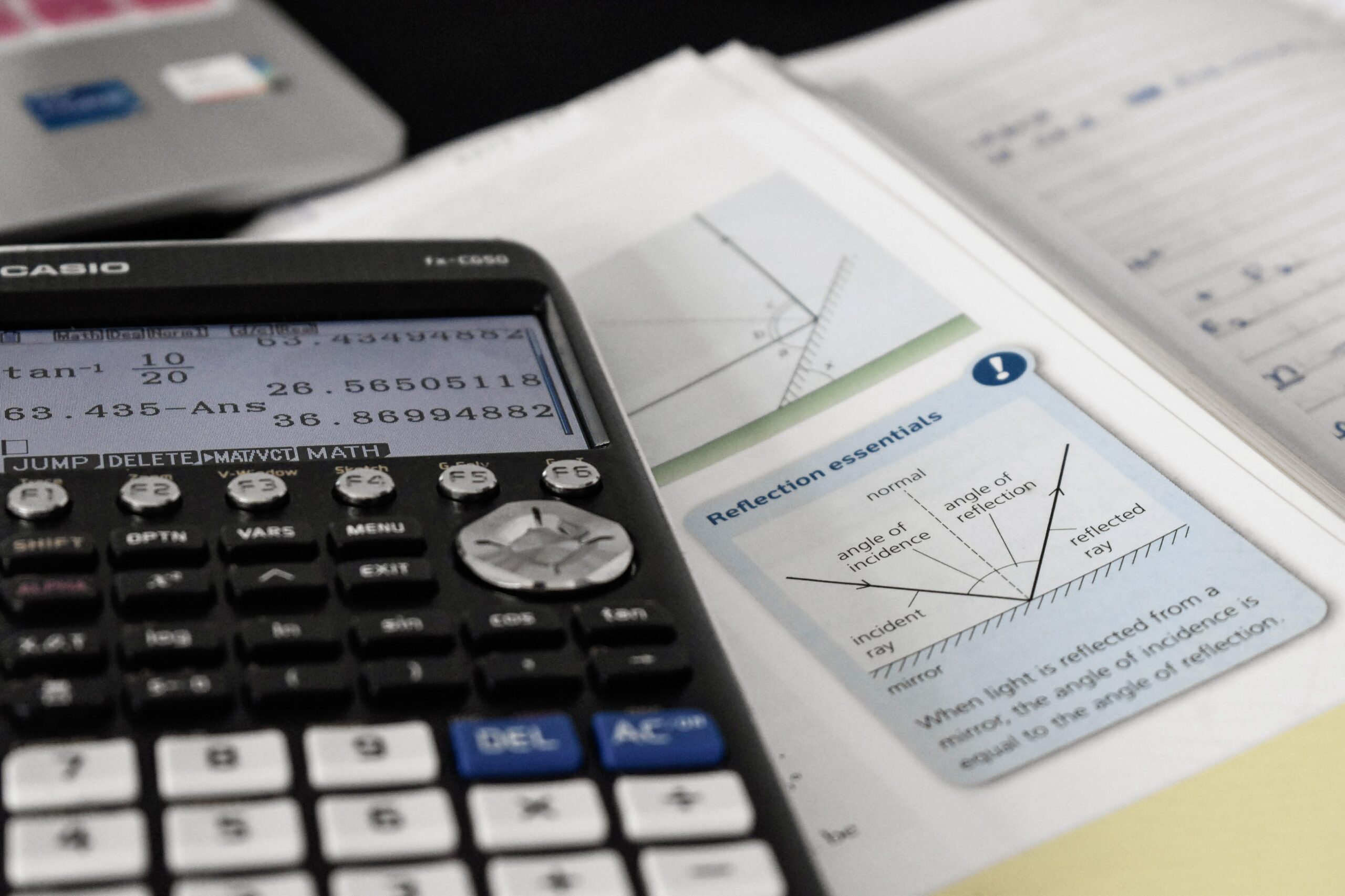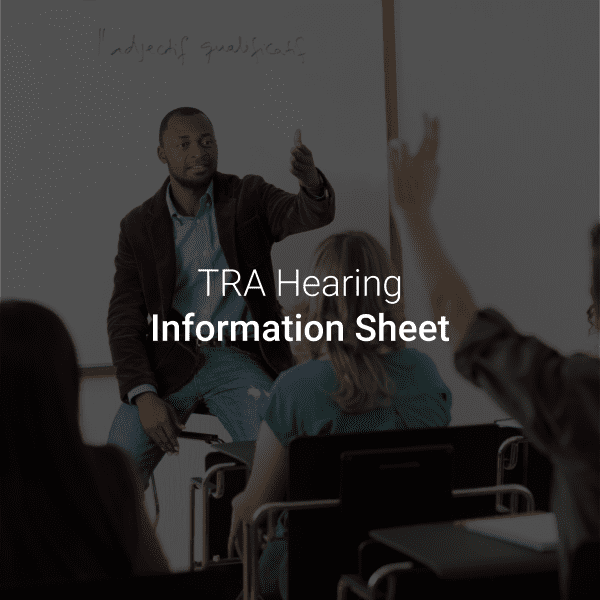How to Appeal A-Level Results
You may be considering how to appeal your A-level results if the grades you received were not what you expected. Given the importance of academic grades to your future plans for studying and employment, we understand that this can be an emotional, often overwhelming, time. It helps to have a clear view of the steps involved in challenging A-level grades.
Written by Richard Nelson’s team of specialist education solicitors, this guide walks you through how to appeal A level results. It explores key questions that parents and students often ask us. If the answer you’re looking for isn’t here, don’t hesitate to get in touch today, as we are well-placed to advise you, whatever the nature of the issues you are facing.
Prefer to watch a video? Our team has put together a thorough overview of the process which you can watch below.
Can you appeal A-level results?
Yes, it is possible to challenge A-level results. The process comprises two main stages: first, your marks must be reviewed by the relevant exam board; if you believe a mistake has been made following a thorough review, you may then submit an appeal.
The initial stages of challenging A-level grades
The first step is to have your marks reviewed by the exam board. You will need to speak to your school or college and ask them to make that request on your behalf. Only people who sat the exam as a private candidate have the choice to either contact the exam board directly or go through the centre which submitted your entry. It is important to know that you may have to pay a fee to have your marks reviewed if your grade is not changed as a result. Read on to learn more or speak to a member of our team.
1. Requesting a copy of the marked script
It may be pragmatic to speak to somebody at your school or college first, to raise your concerns and seek their professional opinion. This could be the exams officer or a teacher who knows you well. They could request a free copy of your marked script, firstly to ensure that all pages have been marked and that the marks awarded add up. Secondly, they might cast their professional eye over it and consider whether the examiner may have made a mistake in their marking. For A-level papers, the request deadline for a copy of the marked script is 31st August 2023. Bear in mind that it can take up to a week for the school or college to receive the paper.
You also need to reflect honestly on your performance and look to others to see if they experienced similar disappointment. Often, the media will report on exam day and will highlight any noticeable patterns. Ask yourself whether something may genuinely have gone wrong or if it may just have been a disappointing performance on the day in which case, you may be better trying to arrange a re-sit.
2. Requesting a clerical re-check or review of marking
Your school or college can apply to the exam board for one of the following services:
- Clerical re-check – this is a check which will ensure that all pages were marked, that all marks were counted, and that the result corresponds with the marks on the paper. This would normally take up to 10 calendar days.
- Review of marking – a review of marking includes a clerical re-check. A second examiner will review the paper to identify any genuine marking errors or unreasonable marking. The reviewed marks will be counted and you will receive a copy of the reviewed script. You should expect this process to take up to 20 calendar days.
Deadlines for reviews of A-level grades
The deadline for requesting a clerical re-check or review of marking is 28th September 2023.
What if I have a university place conditional upon my results?
If you have applied to university and have received a conditional offer dependent upon achieving particular grades in your AS or A-level exams, you are entitled to request a Priority Review of marking, which will also include a clerical re-check. This can be done without requesting a copy of the marked paper first as that will take more time. There is a tight deadline for submitting a request for a Priority Review – 24th August 2023. Speak to the university as soon as possible and ask if they hold your place open pending the outcome of the review. You should expect a priority review to take up to 15 calendar days.
Will my A-level exam grade go up?
It is possible that your A-level exam grade will go up during a review of marking, however this is not guaranteed.
When your marks are reviewed, they may go up, go down, or stay the same. There is no ‘grade protection’ so it is important to understand that, if the new marks are lower than what you were originally awarded, you cannot withdraw the request and revert back to the previous, higher mark. You must accept the new, lower mark, as must your University.
Even if you are awarded more marks on a particular paper, it may still be insufficient to increase the overall grade for that subject, for example, from a B to an A. Grade boundaries change year on year through a process of moderation so please consider this when you appeal.
Submitting an appeal of A-level exam results
It may be possible to appeal the results, but only after a review as detailed above has taken place. As with the review, only private candidates may approach the exam board directly. Other candidates must go through the school or college, otherwise they will not be processed.
Deadlines for A-level results appeals
Should you decide to submit an A-level results appeal, there are strict deadlines to adhere to:
- When appealing the outcome of a review of results, the appeal must be made within 30 calendar days of receiving the outcome.
- Appeals against malpractice, reasonable adjustment decisions, or other administrative decisions, must be received within 14 calendar days of the original decision.
If you don’t appeal on time, your appeal is unlikely to be accepted.
What should an appeal of exam results focus on?
Once your exam paper has been reviewed, you need to consider why you still want to take the matter further. Appeals against exam results should focus on whether the exam board has:
- Used correct procedures.
- Applied these procedures properly and fairly in arriving at judgements.
- Properly applied the mark scheme.
Do you have reason to question whether one of the above applies? The school or college does not have to submit an appeal on your behalf if your grounds for appeal are not permitted grounds or where it does not agree that the rationale for your request is sound.
The A-level results appeal process
In situations where your school or college agrees with the grounds for your appeal and submits it on your behalf, the A-level results appeal process is then broken down into two further stages.
Stage 1 appeals
The first step of the appeals process is the preliminary stage. This appeal application must be submitted within 30 days of receiving the outcome of the review of marking and must clearly set out the grounds for appeal. If the appeal goes ahead, it will be investigated. Where it is made on the basis of an unreasonable application of the mark scheme, a senior examiner will review the appeal and provide a report. The aim is that this preliminary appeal will be completed within 6 weeks of receiving the application.
Stage 2 appeals
You can apply for an appeal hearing if you are unhappy with the outcome of the preliminary appeal. This application must be submitted within 14 days of receiving the preliminary appeal outcome. This will involve a panel hearing the appeal on a suitable date, with documentation circulated to you in advance. It is anticipated that a stage 2 appeal will be conducted within 70 calendar days of receiving a valid application.
Approaching Ofqual to challenge a final decision
The final avenue after your marks have been reviewed and you have gone through both stages of the appeals process, is to approach Ofqual (the government department that regulates qualifications, exams and tests in England).
Ofqual can look at the matter again after the exam board has issued a final decision against your grade if you have reason to believe that the exam board may not have followed its own procedures correctly and complied with the rules. This is known as the Exam Procedures Review Service. Applications should be made within 3 weeks of the final appeal decision. Like with appeals, there are strict criteria to meet and applications should be made by the school or college, unless you are a private candidate.
You must understand that Ofqual will not review your work. You will not be offered a different mark. It cannot tell the exam board to change your grade but it can recommend that the exam board looks again at the appeal, if it is found and agreed that something went wrong with the initial process.
Why should I instruct Richard Nelson LLP?
Our education solicitors can offer advice which will allow you to prepare your own letters of support. Alternatively, we can prepare formal written responses, addressing all of the pertinent issues. We can also suggest evidence which might help support your application – one of the main difficulties with appealing marks is recognising and articulating the grounds for appeal.
The team will support you with this and keep momentum going with the administrative side. Although there are timescales which the exam boards try to adhere to, this is understandably a very busy time for them and so it is important to keep the pressure on once you have submitted your request.
Our experience and success with these matters makes us ideally placed to work with you at this challenging time. Get in touch with our team today.




